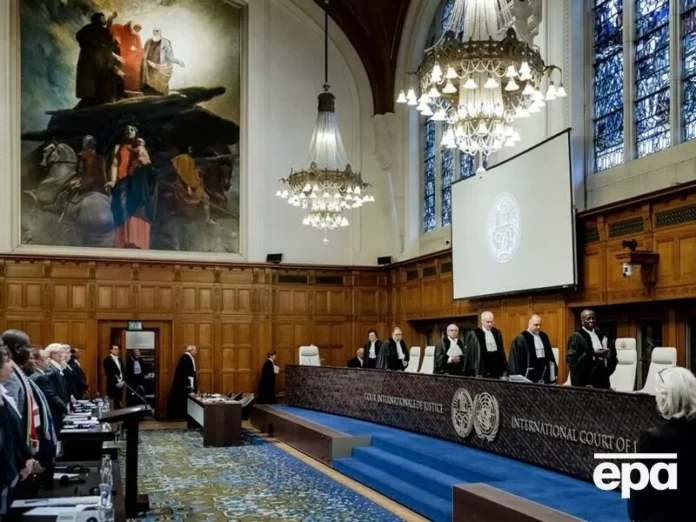On January 25, the International Court of Justice in The Hague announced that it will deliver its ruling on January 31 regarding Ukraine’s lawsuit against Russia, accusing the country of financing terrorism and violating the International Convention on the Elimination of All Forms of Racial Discrimination.
This case has been ongoing for several years, with Ukraine alleging that Russia has been providing financial and military support to separatist groups in eastern Ukraine, leading to an ongoing conflict that has claimed thousands of lives. The lawsuit also accuses Russia of discriminating against ethnic and racial minorities in the annexed Crimea region.
The decision by the International Court of Justice is highly anticipated not only by the parties involved, but also by the international community. This ruling has the potential to set a precedent for future cases involving state-sponsored terrorism and discrimination.
Ukraine’s argument is based on Article 18 of the International Convention on the Elimination of All Forms of Racial Discrimination, which states that «State parties undertake to submit to the International Court of Justice, in accordance with the Statute of the Court, disputes concerning the interpretation or application of this Convention.»
Russia, on the other hand, denies all allegations and argues that the court lacks jurisdiction in this case since the convention does not apply to «situations of armed conflict.» Russia also claims that Ukraine’s lawsuit is politically motivated and an attempt to divert attention from its own internal issues.
Despite Russia’s arguments, the International Court of Justice has already ruled in favor of Ukraine in preliminary proceedings, stating that the convention applies to the situation in Crimea. This ruling is a significant step towards holding Russia accountable for its actions in Ukraine.
The international community has been closely following this case and many countries have shown their support for Ukraine’s stance. The European Union has imposed sanctions on Russia for its actions in Ukraine, and the United Nations has also condemned Russia’s annexation of Crimea.
In addition to the legal implications, this ruling also has the potential to impact the already tense relationship between Ukraine and Russia. A ruling against Russia could lead to further deterioration of relations and potential implications for other conflicts involving state-sponsored terrorism. On the other hand, a ruling in favor of Russia could have repercussions for the international community’s efforts to counter terrorism and discrimination.
Furthermore, this ruling could also have financial implications for both countries. If the court rules in favor of Ukraine, Russia may be required to pay reparations for damages caused by its actions in the country. This could also lead to economic consequences for Russia, which is already facing sanctions and struggling with its economy.
In conclusion, the International Court of Justice’s decision on Ukraine’s lawsuit against Russia is of great significance and its outcome will have far-reaching consequences. It will not only determine the responsibility of Russia for its actions in Ukraine, but also set a precedent for similar cases in the future. The ruling will also have political, diplomatic, and economic implications, making it a highly anticipated event for the international community.

